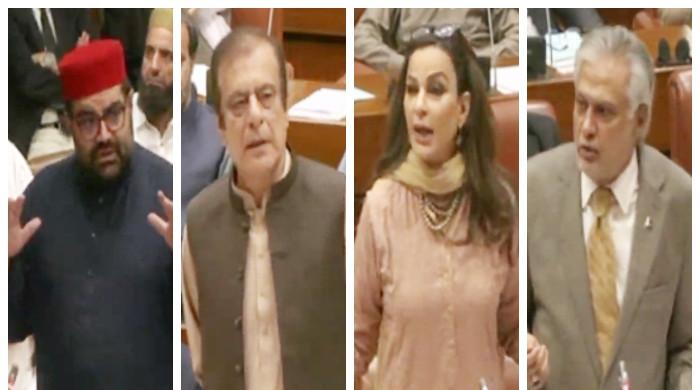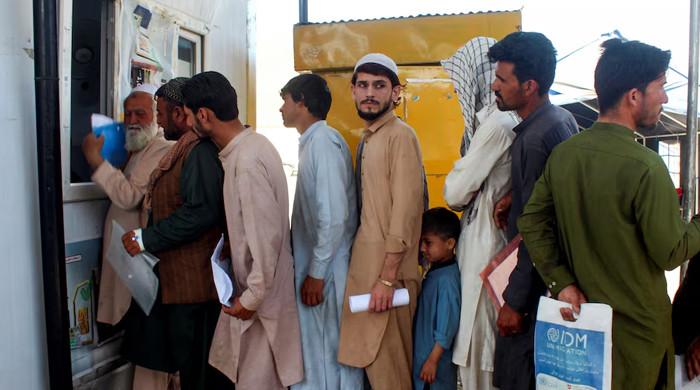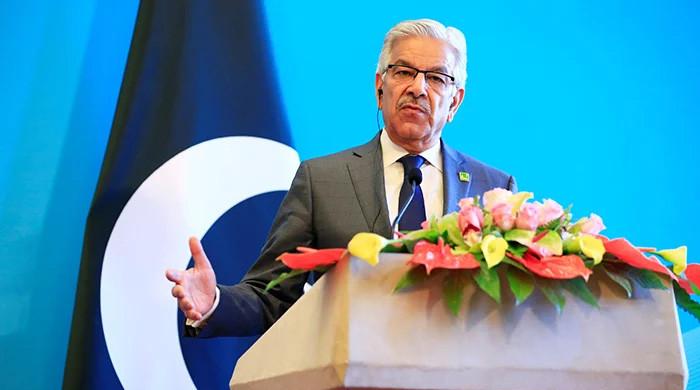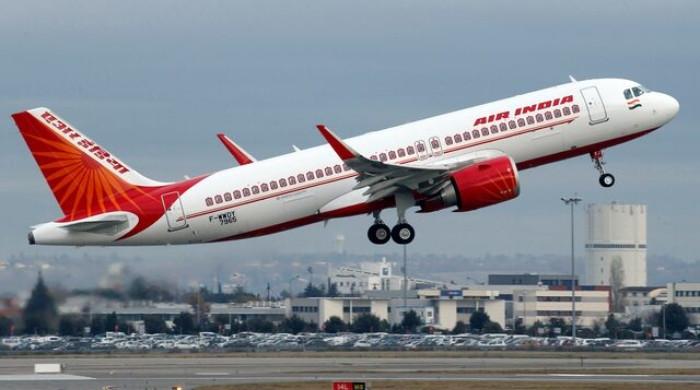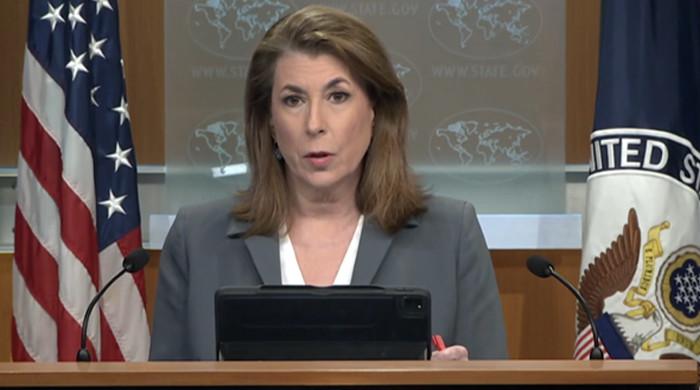Imran Khan wanted to bring ‘revolution against army’: Pervez Khattak
“I see elections in February, 2024,” says PTI-P Chairman Pervez Khattak
August 26, 2023
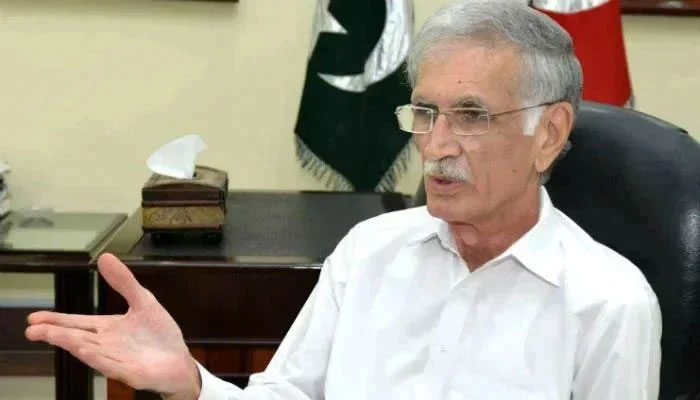
- “PTI may be banned,” Khattak predicts.
- Imran Khan was against the 18th Amendment, he says.
- "Azam Khan [former principal secretary] ran the government," he reveals.
PESHAWAR: In his latest salvo against his former political boss — Imran Khan — Pakistan Tehreek-e-Insaf Parliamentarians (PTI-P) chief Pervez Khattak on Saturday accused Pakistan Tehreek-e-Insaf (PTI) chairman of hatching a conspiracy to bring about a “revolution” against the Pakistan Army.
PTI-P Chairman Khattak made the remarks during an interaction with the journalists. The newly-formed political party’s vice chairman and Khyber Pakhtunkhwa former chief minister Mahmood Khan was also present during the interaction.
Berating his former boss, Khattak — who launched his new political party last month — claimed that Khan was against the 18th Amendment.
It is pertinent to mention here that the PTI, on July 12, terminated the basic party membership of Khattak after he failed to respond to a “show cause notice” issued to him. The notice was served on him for asking workers to quit the PTI.
A few days later he launched the PTI-P.
“Azam Khan [former principal secretary] ran the government and the rest used to help him,” revealed the ex-defence minister.
Refereeing to May 9 riots and attacks on the military in stations, Khattak said, “PTI may be banned.”
The May 9 riots were triggered across the country after the deposed prime minister's arrest in the £190 million settlement case. Hundreds of PTI workers and senior leaders were put behind bars for their involvement in violence and attacks on military installations.
During the protests, the miscreants targeted the civil and military installations including — Jinnah House and the General Headquarters (GHQ) in Rawalpindi. The military termed May 9 "Black Day" and decided to try the protesters under the Army Act.
Responding to a question, Khattak said that the establishment had created an environment for elections but Khan did not agree to it.
Contrary to Khan’s allegations against the former chief of army staff (COAS) Gen (retd) Qamar Javed Bajwa, the ex-defence minister said, “Gen Bajwa supported us [PTI] a lot.”
The former army chief, however, excused himself from further support as the Khan-led had failed to deliver, he added.
To another query, the PTI-P chief said, “I see elections in February, 2024.”
Uncertainty around polls
There has been uncertainty around when the polls will be conducted after the dissolution of the assemblies.
The Shehbaz Sharif-led government dissolved the National Assembly on August 9, while Sindh and Balochistan assemblies were also prematurely dissolved to allow the electoral authority to hold elections in the country within 90 days instead of 60 days if the legislature completed its constitutional tenure.
However, the ECP may not be able to hold the polls within the stipulated time as the Council of Common Interest (CCI), days before the dissolution of the assemblies, approved the 7th Population and Housing Census 2023.
The CCI meeting chaired by then-prime minister Shehbaz Sharif approved the final results of the census reporting the country’s population at 241.49 million with a growth rate of 2.55%.
The CCI approval made it constitutionally mandatory for the poll watchdog to hold elections following fresh delimitations in the light of the results of the 7th census.
According to Article 51 (5) of the Constitution, the seats of the National Assembly to each province and the federal capital shall be allocated on the basis of population in accordance with the last preceding census officially published.
Subsequently, on August 17, the ECP announced the schedule of new delimitations to be carried out as per the new census approved by the CCI.
As per the schedule, the new delimitation of constituencies nationwide will be notified in December this year.
The ECP schedule showed that fresh delimitation will take nearly four months, meaning the general elections in the country cannot be held within 90 days of the dissolution of the provincial and national assemblies.




